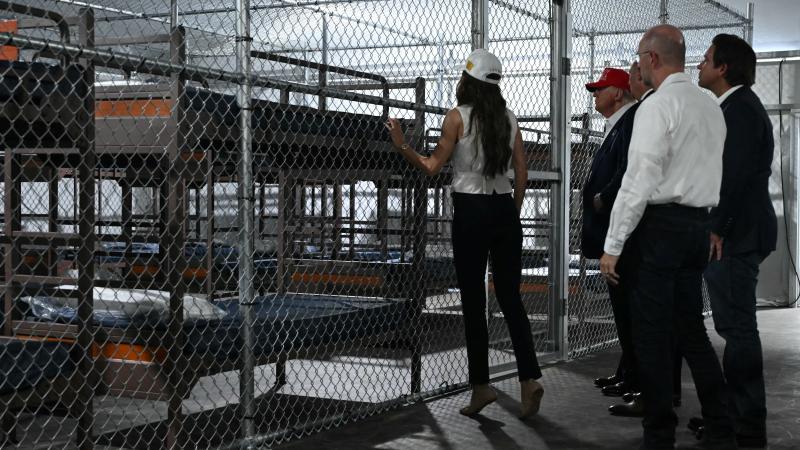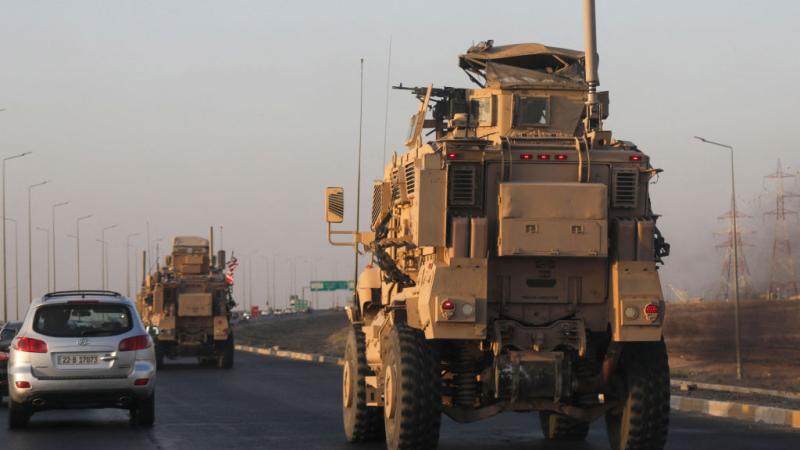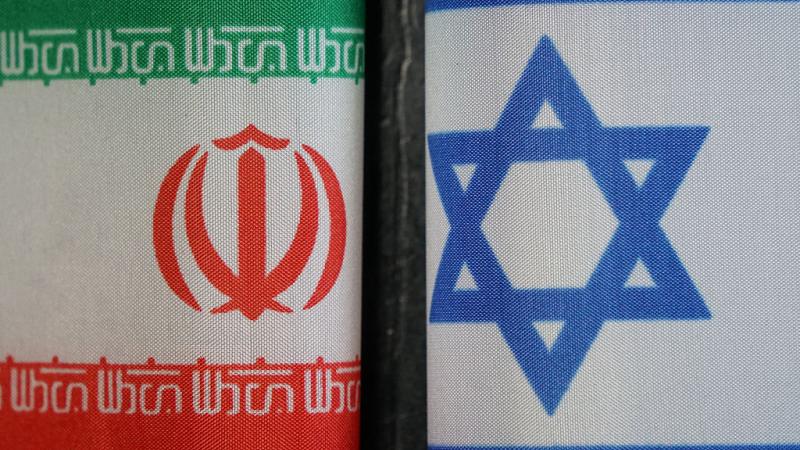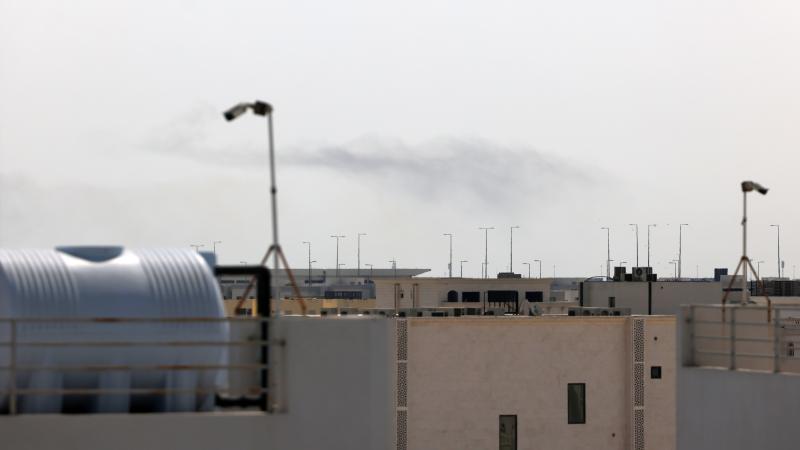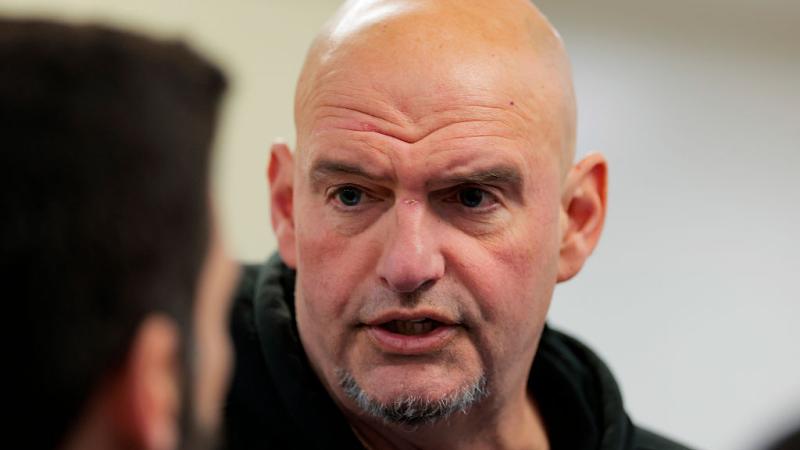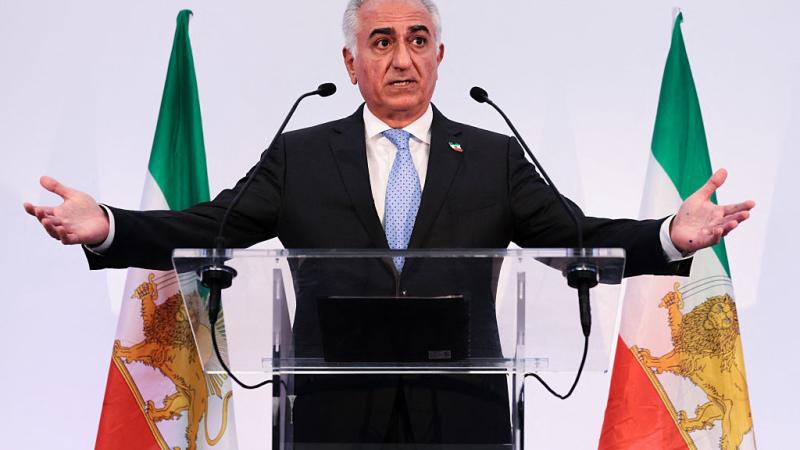U.S. intelligence in 'overdrive' to decode Russia's war signals, analysts say
Moscow has prompted skepticism with claims that its troops have achieved their goal in Ukraine, and are shifting attention to Donbas.
The U.S. intelligence community has gone into "overdrive" working to decode signals that simultaneously underscore and contradict claims from Moscow that leader Vladimir Putin's forces have achieved their goal in Ukraine and shifted focus to the country's eastern Donbas region, sources tell Just the News.
"Putin has not been afraid to say one thing and do the opposite," one Pentagon analyst said. "He's sending a lot of messages at the moment, and we are in overdrive gaming out what they mean."
The analyst is a Russia specialist and spoke on the condition of anonymity because he is not authorized to talk to the media.
Most recently, the Kremlin has said that the month-long invasion has met its aims of demilitarizing Ukraine and will now shift tactics toward securing Donbas.
Western observers have questioned the claim, suggesting that it might be a diversion from Russia's military failure, which includes underestimating Ukraine's fierce opposition.
"We will monitor the situation on the ground to make sure that we understand how they are shifting tactics," said Julianne Smith, the U.S. ambassador to NATO. "I don't think we have evidence of that quite yet."
The U.S. does have evidence that "the Russians have not succeeded in their original aims," Smith said during a Sunday talk show interview. "And that was, as you well know, to take Kyiv in just a couple of days. We're now at the one-month point. And it's clear that Russian forces are not performing as anticipated, and that this has not gone as planned."
Putin on Feb. 24 ordered his forces to invade their western neighbor for what he presumed would be a quick, decisive "special military operation" to "demilitarize" that nation.
Instead, Russian troops faltered, even while launching devastating artillery and rocket barrages against Ukrainian cities.
Putin invaded Ukraine because he was apparently concerns that Ukrainian efforts to the joint the Western-led North Atlantic Treat Organization, or NATO, would jeopardize his power over former Soviet Bloc nations.
The Russian General Staff last week told Russian journalists that the primary aim was to capture Ukraine's eastern regions of Donetsk and Luhansk.
That claim was false, according to a report from the Institute for the Study of War.
"Russian forces elsewhere in Ukraine have not stopped fighting and have not entirely stopped attempting to advance and seize more territory," the March 25 report states. "They are also attacking and destroying Ukrainian towns and cities, conducting operations and committing war crimes that do not accord with the objectives" the general staff claims Russia is pursuing.
In response, U.S. military intelligence officials are studying carefully to sift truth from rhetoric, the Pentagon analyst said.
"This is where our training and education come in," the analyst said. "This isn't a simple read."
Idaho Sen. James Risch, the top Republican on the Senate Foreign Relations Committee, sees one particular element that he believes to be true about the Russian statements.
"You can't believe anything they say," said Risch, who also serves on the chamber's Intelligence committee. "So I don't put any stock in the fact that they're announcing that they're changing the policy."
Russia is "losing this war," Risch also said during the Sunday talk show interview. In addition, he said the so-called special operation may "fall out from underneath" Moscow and that he wasn't surprised "to hear them say they're going to do something different."
Reports on Monday suggested Moscow may be ramping up its efforts against Kyiv, possibly planning a corridor around the city, to block off deliveries of food and other vital supplies.
"Let's give it some time," Smith said regarding the alleged tactical shift. "Next couple days, the United States, working closely with allies and the Ukrainian government, will be looking for evidence of this shift."
Delegates from Ukraine and Russia meet this week in Istanbul, to discuss possible peace measures.

